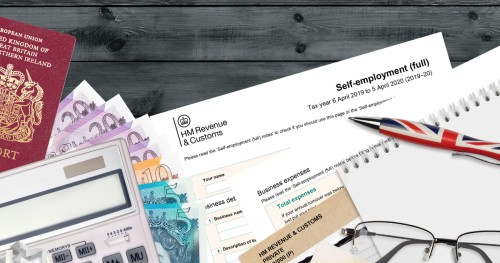How IR35 traps can be avoided as a freelancer

A question often being asked in the post-covid world is whether working remotely blurs the lines regarding IR35 status.
Working remote is among the key workplace and client scenarios that freelance professionals fear could place an initially outside IR35 contract inside the off-payroll rules, and I will explore those key potential ‘IR35 traps’ here, writes Seb Maley, CEO of Qdos.
‘Work in the office, alongside our staff.'
So, does working from home mean an independent consultant is more likely to belong outside IR35? And, might working on-site – at a client’s office for instance – mean your engagement falls inside IR35?
Truth be told, it shouldn’t have much of a bearing. Historically, location hasn’t decided IR35 cases. And today – an era in which many employees themselves spend some or even their entire time working remotely – it’s likely to have even less of an impact on IR35 status.
But place of work aside, there are other scenarios or client requests that might indeed lead to an outside IR35 contract being reassessed and reconsidered as an inside IR35 engagement.
Here are some of the client questions, requests and offers to beware -- if you’re keen to retain your self-employed status and not fall into IR35 traps.
1. 'We only want you to carry out the work’
Whether or not a freelance contractor is able to substitute in order that another contractor can deliver the work is linked to what’s known as ‘Personal Service.’ In other words, does John Smith provide the services or is it John Smith Limited and can anyone from John Smith Limited carry out the work?
Ideally, in an outside IR35 engagement, ‘Personal Service’ shouldn’t exist. While not necessarily decisive, if a client suddenly stresses they want you and only you to carry out the work, a reassessment of IR35 status is worthwhile.
2. ‘These are your new working hours – stick to them’
A freelance professional who is genuinely self-employed working outside IR35 should be able to dictate their own working schedule.
Of course, in the real world, this doesn’t always translate. Even so, being told by your client that you’ll need to abide by their working hours, along with break times, is a sign that you’re either; operating under the control of the client or are ‘part and parcel’ of the organisation. Both are big indicators that you are caught by IR35.
So you might want to push back or raise this issue with them. The more freedom, flexibility and autonomy you have with regard to providing your services, the better it is for your outside IR35 status.
3. ‘It’s time for an upgrade – here’s your new laptop’
As tempting as it may be to accept the offer of a new laptop or equipment required to carry out the service, it’s in your best interests to politely decline.
Contractors, freelancers and other independent consultants working outside IR35 – as businesses providing their services to another business – should possess everything (within reason) needed to deliver their services.
4. 'Can you do this for us too?’
It’s fairly common for clients to ask for extra support here and there – for you to carry out work that falls outside the agreed contract and at no extra cost. It’s also easy to fall into the trap of saying ‘yes’ without really thinking about it. After all, who doesn’t want to keep their client happy?
This may have IR35 implications, though. Accepting unpaid work outside the confines of an agreement could see Mutuality of Obligation (MOO) – another inside IR35 indicator – apply.
MOO is the mutual obligation that exists between an employer and an employee. The employer provides work and the employee has an obligation to say ‘yes.’ It shouldn’t be present in outside IR35 engagements.
If the client-request is well outside the scope of your agreement – and one which may become a regular activity – you may want to amend your contract to include the work to protect your outside IR35 status. Or, just politely decline.
Final piece of advice: Think before you act
There are plenty of other seemingly innocuous requests or offers from clients which could have an impact on your IR35 status – from agreeing to KPIs and having performance reviews to something as innocent as being given access to the staff car park.
However, the implication of ‘just going along with it’ could result in your outside IR35 engagement slipping into one which reflects disguised employment. So think before you act!



Comment
Log in or create your account to react to the article.